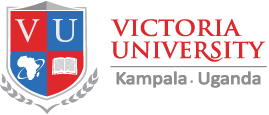Quick Facts
Credential
Certificate
Delivery Options:
Both On-Campus and Online - Some of your Classes will be in-person, on campus and some will be done online.
Duration: Two Years
With a typical full-time course load, this programme will take Two Years to complete.
Language of instruction
english
Admission Requirements
To be eligible for admission to the NCSW programme, a candidate must meet one of the following minimum qualifications:
a) Ordinary Level Entry Scheme (Uganda Certificate of Education Entry Scheme):
The candidate must hold a Uganda Certificate of Education (UCE) with a minimum of 3 passes, or an equivalent qualification, with no restrictions on the subjects or the year of sitting.
b) Certificate Entry Scheme:
The candidate must possess a Junior Vocational Certificate (JVC) from a recognized institution.
NONE
What you will Learn
Students enrolled in the CSW (National Certificate in Social Work) programme typically engage in a comprehensive curriculum designed to equip them with foundational skills and knowledge in social work and community service. The key learning areas include:
Introduction to Social Work:
Basic principles, values, and ethics of social work practice.
Understanding human behavior and social environments.
History and development of social work as a profession.
Communication Skills:
Effective interpersonal and professional communication.
Counseling techniques for individuals, families, and groups.
Report writing and case documentation.
Community Development:
Techniques for community engagement and empowerment.
Mobilizing resources for community improvement projects.
Advocacy for vulnerable groups and community leadership.
Human Rights and Social Justice:
Understanding human rights frameworks and social justice issues.
Promoting equality and fighting discrimination in diverse social contexts.
Social Work Practice:
Practical skills for working with individuals, families, and communities.
Fieldwork placements to apply theoretical knowledge in real-world settings.
Case management and crisis intervention strategies.
Basic Counseling and Support Skills:
Counseling techniques for addressing personal, social, and emotional issues.
Handling sensitive cases, such as domestic violence, child protection, and mental health challenges.
Research Methods in Social Work:
Introduction to social research methodologies.
Conducting assessments and evaluations in social work settings.
Legal and Ethical Issues:
Familiarity with the legal frameworks relevant to social work practice.
Understanding ethical dilemmas and decision-making in professional settings.
Health and Social Care:
Understanding the role of social work in health care systems.
Support for individuals with physical or mental health issues.
This curriculum prepares students to provide support to individuals, families, and communities, especially in areas that require social intervention, rehabilitation, and advocacy.
Career Opportunities
Graduates of the National Certificate in Social Work and Social Administration (NCSW) from Victoria University's Institute of Advanced Technical Studies have access to a wide range of career opportunities across various sectors. Here are some of the potential career paths:
1. Social Worker
Work in government or non-governmental organizations (NGOs) to provide support and advocacy for individuals, families, and communities facing challenges such as poverty, abuse, or mental health issues.
2. Community Development Officer
Lead and coordinate projects that aim to improve the quality of life in communities through empowerment, education, and resource mobilization.
3. Social Welfare Officer
Serve in local or national government departments, assisting in the development and administration of social welfare programs designed to support vulnerable populations.
4. Child Welfare Officer
Advocate for and protect the rights of children, working closely with schools, families, and social services to ensure the well-being and safety of children.
5. Humanitarian Aid Worker
Work with international or local aid organizations in crisis areas to provide immediate and long-term relief to communities affected by disasters, conflict, or other emergencies.
6. Gender and Social Development Specialist
Promote and develop policies and programs that address gender inequality and empower vulnerable groups, contributing to social justice initiatives.
7. Health and Safety Officer
Ensure the health, safety, and welfare of individuals in various workplaces or communities, advocating for proper environmental and health standards.
8. Administrative Officer in Social Services
Oversee the administrative operations within social service agencies, handling program coordination, budgeting, and resource management.
9. Project Manager for Community Initiatives
Lead and manage community-based projects aimed at improving livelihoods, health, education, and social infrastructure in underserved areas.
10. Counselor or Psychosocial Support Provider
Provide emotional and psychological support to individuals and groups facing various personal, familial, or societal challenges, fostering mental health and resilience.
11. Cultural Resource Coordinator
Work within cultural organizations to preserve, promote, and leverage cultural heritage and resources for community development and tourism.
12. Youth Worker or Youth Program Coordinator
Engage with young people through educational and recreational programs designed to promote their personal development, leadership, and social responsibility.
13. Advocacy and Policy Officer
Work on influencing social policy and advocating for marginalized groups, helping to create more equitable social services and laws.
14. Volunteer Coordinator
Recruit, train, and manage volunteers for non-profit organizations or community initiatives, ensuring that volunteer efforts are aligned with organizational goals.
These roles are vital in promoting social welfare, community development, and sustainable growth. Graduates of this program will be well-prepared to make meaningful contributions in these career paths.
Tuition & Fees
The tuition and fee amounts are estimates based on current academic year's rates. For financial planning purposes, please use these totals as an approximate estimate of your costs. Actual fees may vary by term and enrolment activities.
Download
